- Learning time
- 20 minutes
- First play time
- 45 minutes
Quirky Circuits
Designed by: Nikki Valens
In Quirky Circuits, players work together to guide a robot through a physical space and meet a set of objectives: there are numerous scenarios (and robots) that come with the game, but we’ll describe the introductory one here: your robot is a carpet cleaner, and must gather all the dust before returning to it’s starting spot before the battery runs out. Success or failure depends both on how well the players play their cards, and read each others’ intentions.
The robot is placed on it’s starting spot on the board (-actually a book of scenarios) and dust is placed in certain locations. You’ll notice the scenario is divided into a grid of small squares, and these define movement. Everyone starts with a hand of four randomly-dealt movement cards from a deck: which are made up of moving forward a number of squares (1, 2 or 3) backward one square, and turning left, right, or 180 degrees. You’re not allowed to tell the other players what cards you have!
There are no turns – when play begins, players have to kind of co-ordinate efforts by laying cards face-down left to right in the sequence they want to play them. Helpfully however, the back of the cards does give everyone some information: each card shows whether it’s programming movement (but not how far) or turning (but not which way). So for instance if a couple of movement cards have been played, and I think the robot has reached a certain spot, I might now decide to play my turn left card, quickly followed by a movement card. Players must all play at least one card, and at least five cards must be played in total (though you can play as many more as you like). It tends to happen that the more cards you play, the more likely it is to go wrong…
When everyone agrees to stop adding cards to the sequence, they’re revealed and activated from left to right. Hopefully, the robot steers a path around obstacles and snaffles up the objective dust. But not always. If it bumps into anything the robot automatically turns left, and from here the best-laid plans of housework automaton programmers can go very awry. After each sequence, the robot loses battery power (tracked on the board) and the goal is to coplete your objectives before it powers down.
From that simple beginning, Quirky Circuits introduces more nuance in further games: cards that must be played before all others in your hand, breakable vases on the board that can be broken as long as they are cleaned up, chair legs to get tangled in and so on. Once you’re done with the carpet cleaner, there are other robots to explore too, each with their own idiosyncrasies and bespoke scenarios to navigate!
The guru's verdict
-
Take That!
Take That!
None - players work as a team
-
Fidget Factor!
Fidget Factor!
Almost zero: even if you have a hand of cards you're convinced you can't play - yet - you need to be watchful and get the timing right.
-
Brain Burn!
Brain Burn!
Players *can* communicate, as long as they're not giving away more information than the backs of the cards do.
-
Again Again!
Again Again!
As well as a huge collection of scenarios, each one is also replayable. The crux of how much you enjoy Quirky Circuits isn't down to level of content, though, but how you feel about the unspoken dynamic of trying to program a robot as a team who can barely communicate with each other. Very young kids might find it a little frustrating; older ones (and big kids like myself) may love it

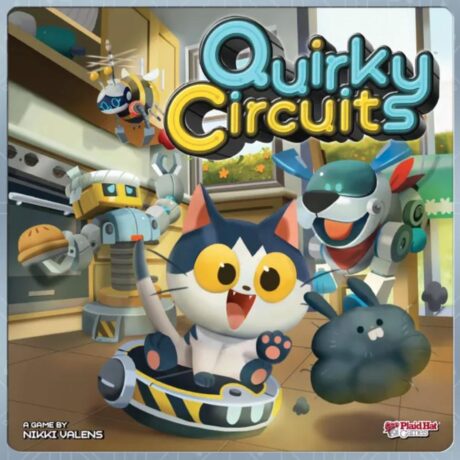
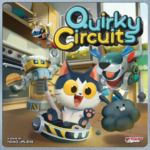
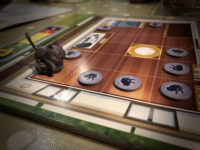
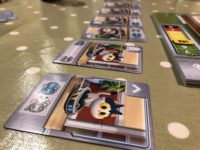
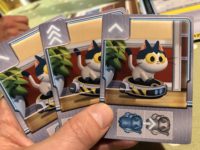
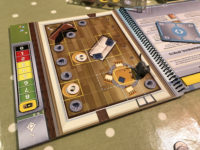


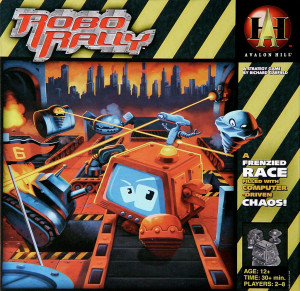
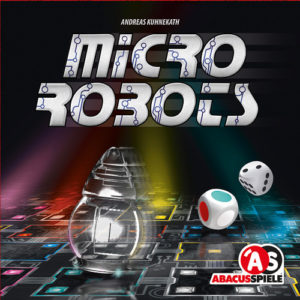


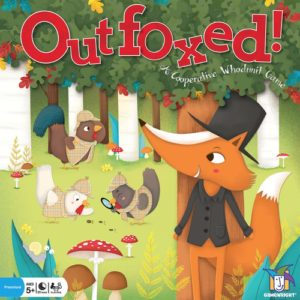
Sam says
Quirky Circuits does a great job of combining a clear objective with simple rules and very accessible and funny experience: if you're okay with things-going-wrong as being an inherent part of the game design. I find because everyone is working together it lends the game humour rather than frustration, and the slowly-draining battery gives the undertaking a drama and tension that leads to occasional satisfyingly-clinical victories, and - more often - dramatic nail-biting finales, replete with the kind of celebration that real-life housework rarely leads to. Great fun.